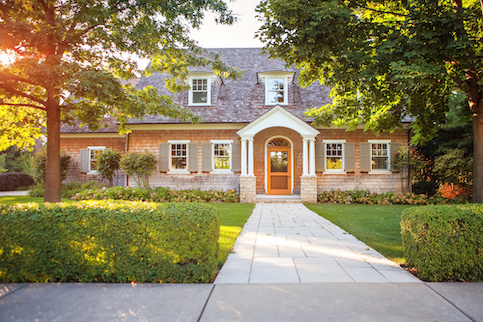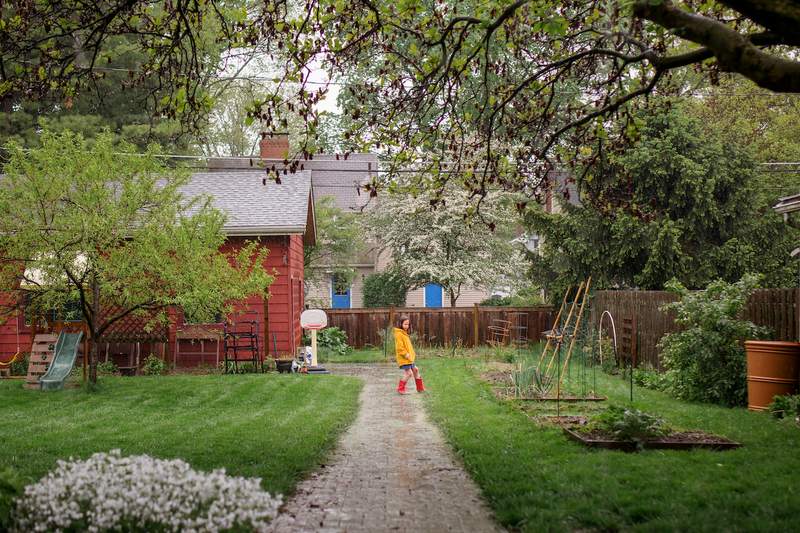Trying to save up for a down payment to buy a home? Saving enough money can be challenging, even with mortgages that accept down payments as low as 3% of the purchase price. But don’t give up on your dreams of homeownership.
Down payment assistance programs that offer grants, low-cost loans, and other forms of financial support can make the difference and help you become a homeowner.
Key Takeaways:
- Saving enough money for a down payment and closing costs can require tens of thousands of dollars and be a hurdle for many.
- Down payment assistance programs offer grants and low-cost loans to help with those costs.
- Many programs are designed to help low- to moderate-income families and first-time home buyers afford a home.
What Is A Down Payment Assistance Program?
Down payment assistance programs typically help low-income borrowers and first-time buyers afford a down payment and closing costs. These programs offer grants, deferred-payment loans and forgivable loans. Other forms of down payment assistance include low-interest loans, lender-specific offerings, individual development accounts and matched savings programs.
How Does Down Payment Assistance Work?
Down payment assistance programs provide grants or loans to eligible home buyers. Funds can be used for a down payment or closing costs. State and local government agencies, nonprofits and other organizations offer programs to help first-time buyers afford the sometimes daunting upfront costs associated with home buying.
Depending on your mortgage type, the typical minimum down payment for a single-family home could be 3% to 10% of the purchase price. This doesn’t include closing costs, which are required to fund your loan and transfer legal ownership of the property. Typically, closing costs are 2% to 5% of the purchase price of the home.
Payment assistance programs vary in functionality. Some programs provide funding that you don’t need to pay back. Other programs, like loans, have to be repaid. Meanwhile, some forms of assistance need to be repaid only under certain circumstances.
Many programs also have property requirements and may require buyers to live in the home for a specific number of years.
Who Qualifies For Help Paying Down Payment House Costs?
You may need to meet one or more of the following requirements to qualify for assistance:
- Meet first-time home buyer qualifications
- Plan to live in the home and make it your primary residence
- Meet income qualifications
- Be in an approved location
- Contribute toward the down payment or closing costs
- Use an approved mortgage lender
- Participate in a class for first-time home buyers
- Buy a home that costs less than the allowed maximum price
Exact requirements vary depending on the down payment assistance program and type of support, so review eligibility requirements before applying.
Related: Tips For Choosing A Mortgage Lender
What’s Your Goal?
Buy A Home
Discover mortgage options that fit your unique financial needs.

Refinance
Refinance your mortgage to have more money for what matters.
Tap Into Equity
Use your home’s equity and unlock cash to achieve your goals.
Finding Down Payment Assistance Programs And Grants
Looking for programs to help with a down payment? Check out these resources:
- Federal Housing Administration: The FHA, part of the U.S. Department of Housing and Urban Development, administers FHA loans and provides a directory of state-run homebuying programs.
- Housing finance agencies: States and some larger cities have housing finance agencies. Look to these agencies for information on state-supported programs.
- Municipalities: Some municipalities and counties have housing support programs.
- Housing-focused nonprofits: Nonprofits focused on housing are potential sources for grants and other forms of down payment aid.
- Down payment assistance programs for specific groups of people: Some programs help people in particular occupations, including teachers and educators, nurses and other healthcare workers, law enforcement and first responders, government employees, active-duty military and veterans. An example is the Teacher Next Door program.
Ready To Become A Homeowner?
Get matched with a lender that can help you find the right mortgage.
Types Of Down Payment Assistance Grants And Programs
Here are some common forms of down payment assistance:
Grants: Down payment assistance grants provide funds that you don’t need to pay back. However, eligibility requirements can make it challenging to qualify for these programs.
Forgivable loans: Another form of assistance is a forgivable loan, which is a second mortgage that you don’t need to repay in full as long as you meet program conditions. For example, you may be required to live in the home for a set number of years to qualify for partial or full loan forgiveness. You may need to make payments for a set time period.
Deferred payment loans: With this kind of loan, payments are deferred until a later date. They typically function as a no-interest second mortgage that you repay when you sell or refinance your home or pay off your primary mortgage. Alternatively, payments may be delayed for a set time. Some lenders may include the payment in your debt-to-income ratio, which can impact the primary mortgage amount your lender approves.
Low-interest loans: Another resource that could provide financial help is a low-interest loan, which you can use toward a down payment or closing costs. It functions as a second mortgage, so you’ll make monthly payments on your primary mortgage and this loan. Your lender may include this second loan payment in your debt-to-income ratio when deciding whether to approve you for a mortgage.
Mortgage lender programs: Some lenders offer down payment assistance programs, often tied to specific loan products, for purchasing a primary residence. Buyers are typically required to contribute a certain percentage of the purchase price, and the lender covers the remaining amount. These programs may be available to current homeowners and first-time buyers. To qualify, you’ll need to meet underwriting requirements.
Matched savings programs: These programs can help you save up more money for a down payment. Typically, you open a savings account, and an organization matches your deposits to help you save faster. Matching funds can be used only for a down payment or other qualifying costs.
Individual development accounts: Individual development accounts are matched savings programs that assist low-income buyers. They’re usually funded by the federal or state governments and run by housing finance agencies. To qualify, you might need to take a financial literacy or homebuyer education class.
Other Solutions To Make Buying A Home More Affordable
Here are some additional resources that could ease the financial burden of homeownership:
Closing costs credits: You may be able to get select closing costs waived, reduced or negotiated, so you pay less up front. Lender credits could waive some closing costs, or you could ask to roll your closing costs into the purchase price. With both of these options, you might end up with a loan with a higher interest rate, which could increase your costs in the long term.
Discounted mortgage rates: Discounted mortgage rates could make homeownership more affordable. Some federal, state and local programs provide interest rate discounts to qualified buyers. While a lower interest rate won’t help pay for your down payment, it could make your mortgage payments more affordable.
Mortgage credit certificates: Some low-income homeowners may benefit from a mortgage credit certificate. While not down payment assistance, these credits could reduce the cost of owning a home. Typically administered by state and local housing authorities, these programs allow qualified homeowners to get a tax credit for a percentage of the interest they pay on their mortgage, up to a limit (often capped at $2,000 annually).
Unlike the mortgage interest tax deduction, you don’t need to itemize. It’s a tax credit, not a deduction, so it reduces your tax owed directly rather than lowering your taxable income.
Take The First Step To Buying A Home
Find a lender that will work with your unique financial situation.
Pros and Cons Of Down Payment Assistance Programs
Review some of the pros and cons of down payment assistance:
Pros
- You could buy a home sooner because you can reach the minimum down payment more quickly.
- You can reduce upfront home buying costs.
- You could receive grants, which you don’t need to repay.
- You could get a lower-interest loan.
- You may qualify for a forgivable loan, which could result in the remaining loan balance being forgiven after you meet specific criteria.
- Some loans don’t have to be repaid until you sell your home or pay off your mortgage.
- You may be able to avoid paying for private mortgage insurance (PMI).
Cons
- You could pay more interest over the loan’s lifetime.
- Escrow may be delayed if contract contingencies include approval of certain down payment programs or if the program takes longer to fund.
- You may need to be a first-time home buyer or meet other requirements.
- You may need to repay the money if you don’t meet specific terms or if you sell or refinance your home.
- Some programs limit the purchase price of the home you can buy.
- Not all mortgage lenders accept down payment assistance programs.
- Some sellers may be less willing to work with buyers who use down payment assistance programs, because there are often more hoops to jump through, which could delay escrow and closing.
Related: First-Time Home Buyer Tips
FAQ
Here are some answers to common questions about programs to help with down payment costs:
The Bottom Line About Finding Down Payment Assistance Programs
Down payment assistance programs provide grants, low-cost loans and other aid to people trying to buy a home. These programs typically assist first-time buyers and people with low-to-moderate income.
Need help with your down payment so you can buy a home? Research down payment assistance programs in your area.

Ben Shapiro
Ben Shapiro is an award-winning financial analyst with nearly a decade of experience working in corporate finance in big banks, small-to-medium-size businesses, and mortgage finance. His expertise includes strategic application of macroeconomic analysis, financial data analysis, financial forecasting and strategic scenario planning. For the past four years, he has focused on the mortgage industry, applying economics to forecasting and strategic decision-making at Quicken Loans. Ben earned a bachelor’s degree in business with a minor in economics from California State University, Northridge, graduating cum laude and with honors. He also served as an officer in an allied military for five years, responsible for the welfare of 300 soldiers and eight direct reports before age 25.












